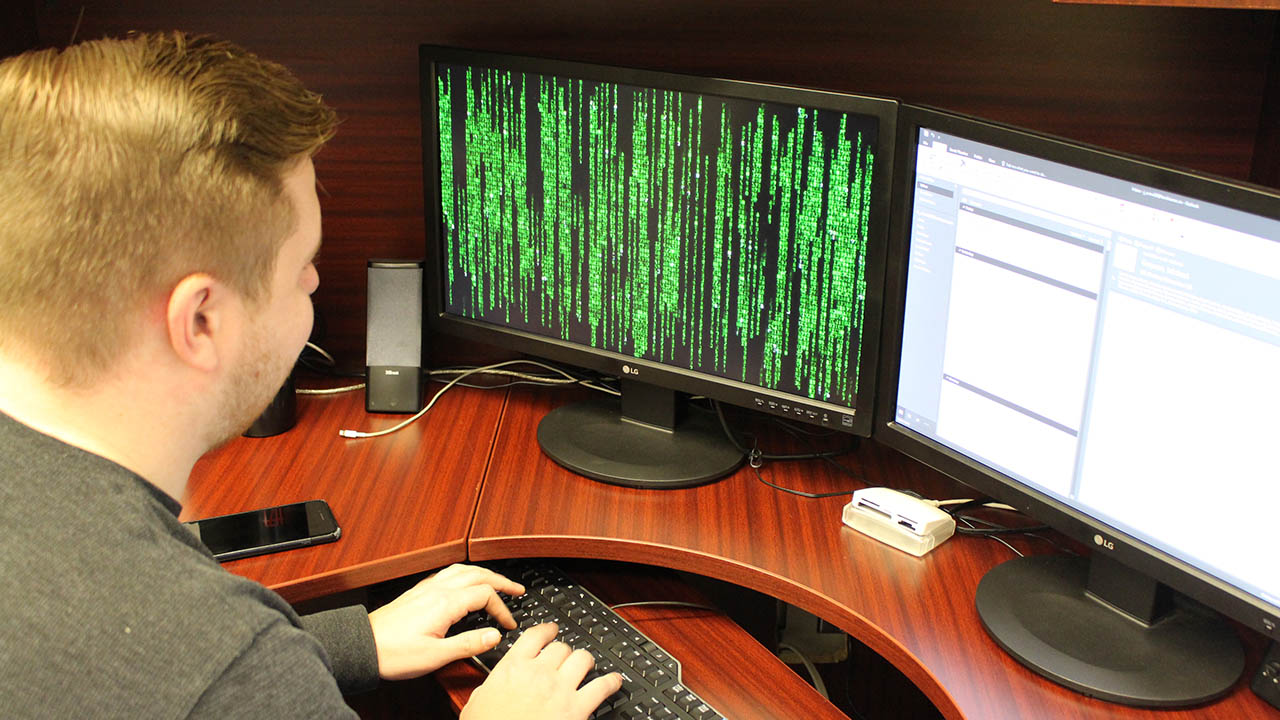Stop helping cybercriminals
 CREDIT: ANGELA MCINNES
CREDIT: ANGELA MCINNESOur reliance on technology makes us all vulnerable to cybercrime.
How do you fight against something that consumes and preoccupies much of your time?
Handheld devices, computers, televisions, Wi-Fi accessible technology is run amok with predators whose aim is to confuse, manipulate, take advantage and rob you. Although the number one recommendation for the battle against cybercrime is the use of antivirus software, the truth is that this software, on its own, is not nearly enough to properly equip you against the evolution of cybercrime.
Today’s landscape bears the poisoned fruit of phishing, ransomware attacks, business email compromise and card-not-present (CNP) fraud, to name a few.
Ransomware attacks pressure the victims to pay a ransom to retrieve personal data that has been hijacked and encrypted by malware and held hostage by the perpetrator.
CNP fraud is exactly as it sounds. A victim’s financial information, mainly from credit cards, is obtained and used for purchasing merchandise online where customer verification is harder to prove.
Phishing is the main tool of cybercriminals, albeit, not a new tool but evolved, nonetheless. Often personal and banking information as well as password transparency are often divulged during these scams that are disguised as correspondence from large, reputable and recognizable companies.
Viruses, trojans and malware continue to grow at alarming rates, changing their DNA at such quick intervals that it creates challenges for antivirus software. The list of issues includes recognizing normal files and programs as malicious, potentially causing harm to the way your programs operate on your device, the ineffectiveness of expired software that leaves programs vulnerable to new strains of viruses and malware disguised as antivirus software.
Despite antivirus software’s challenges with keeping up with quickly changing viruses, trojans and malware, it is still a necessity for the battle on cybercrime. Partnering this software up with diligent monitoring of your online accounts, strong passwords, double access authentication and the segregation of online financial access from other online activities will strengthen your armory and greatly decrease your vulnerability to malicious attacks.
It is easy to think that this type of thing won’t happen to you, until it does. If you are of the variety who loves the thrill and convenience of online shopping, downloading of music or excessive email use, you may or may not be surprised to hear that you are at greatest risk of being attacked.
With higher and higher internet user traffic, commerce has become a thing that is done behind the veil of a screen. We live in a time where divulging our personal information, ultimately, for instant gratification, whether merchandise, sustenance or other vices, is normal. The economic landscape has changed with the buildings that once held the daily operations of multi-billion dollar corporations quickly becoming artifacts of a simpler time.
Trust amongst strangers has become the norm regarding our blind cooperation to volunteer our personal information along digital lines. But it’s the way of the world, right? We cannot escape how ingrained in our society this system of commerce and sharing is, but we can do a better job of protecting ourselves against unsavoury ne’erdo- well’s looking to take advantage.
Most people have multiple devices that are typically clones of each other. We enjoy the centralization of all our interests on these devices, but maybe a migration from those behaviours might serve our security interests better. It is recommended that a separation of online financial access from other online activities would greatly assist in eliminating some vulnerabilities, closing channels that hackers may use to access financial information.
Double authentication is another way in which you can strengthen your cyber security. This process requires the owner of the information to verify their identity by coupling a PIN number, fingerprint scan, security question or one-time passwords, normally sent via text, as a way of making attacks for your information less desirable. Lastly, be sure to stay on top of your software updates, as they often contain information that will help to battle newer strains of viruses.
Convenience makes navigating our busy lives a little easier to manage, but at what cost? As is true for most things in life, be attentive and watch your six, because just hoping all will be well will do you no good when you’re out of pocket for thousands.















